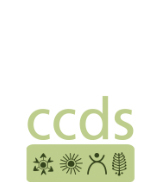
|
|
CCDS has conceived Open Space (www.openspaceindia.org) as a public education programme that promotes new modes of thought for civil society, helps citizens clarify ideas related to diversity, pluralism, rights, social justice and sustainable development, provides an open forum that brings citizens together with CSOs and activists, and builds networks for citizens’ action. CCDS believes that information and analysis on social justice and development issues must not remain confined to seminar halls, government institutions and policymakers. Every concerned citizen must be empowered to participate in public debate and collective action. Information and awareness is the key to such citizens’ participation. Open Space is an open forum that brings citizens together with:
Open Space uses different forms of communication to reach out to citizens. These include art, theatre, cinema, literature, workshops, lectures and seminars. Set up six years ago, Open Space is a vibrant public forum in Pune and other cities in India.We have reached out to thousands of Pune’s citizens – particularly in the 18-30 age-group. About 3,500 of these citizens are registered with us, and are involved in ongoing programmes and campaigns. Open Space has become a vibrant convening space/organisation for Pune’s CSOs and campaigns. Dozens of NGOs collaborate with Open Space to reach out to wider and more diverse audiences through presentations, public lectures, screenings of documentary and feature films on socially-relevant issues, discussions and study groups, concerts, drama etc. Open Space has become the location for a campaign on greater participation of Pune’s citizens in urban governance. OS is also the convenor of campaigns such as the Violence Against Women fortnight. Subjects that are regularly discussed include secularism and pluralism, ecology and biodiversity, social and communal divides, poverty and livelihoods, women’s rights, women’s participation in panchayati raj, gender and sexuality, HIV/AIDS, the rights of marginalised people, sustainable consumption, disaster management, right to information, industrial pollution, access to public healthcare and the cost of healthcare, etc. Open Space has organised several training sessions and capacity-building programmes for people working in social communications or advocacy. These include a theatre workshop which trained youth in the techniques of theatre and street theatre, a workshop on making audio documentaries for social change, a six-week course on understanding and making documentary films on social issues, and a ten-day course on managing and sustaining rights-based campaigns. Open Space has had a strong focus on student outreach. We go into many educational institutions with lectures, films and discussions. OS film clubs have been set up in some colleges. Rather than static viewpoints, CCDS believes in presenting multiple positions and perspectives on issues, whether it’s art and literature, politics and economics, development and ecology, or gender and women’s issues. Open Space is young, informal and plastic, characteristics we intentionally ensure it retains. |
|


